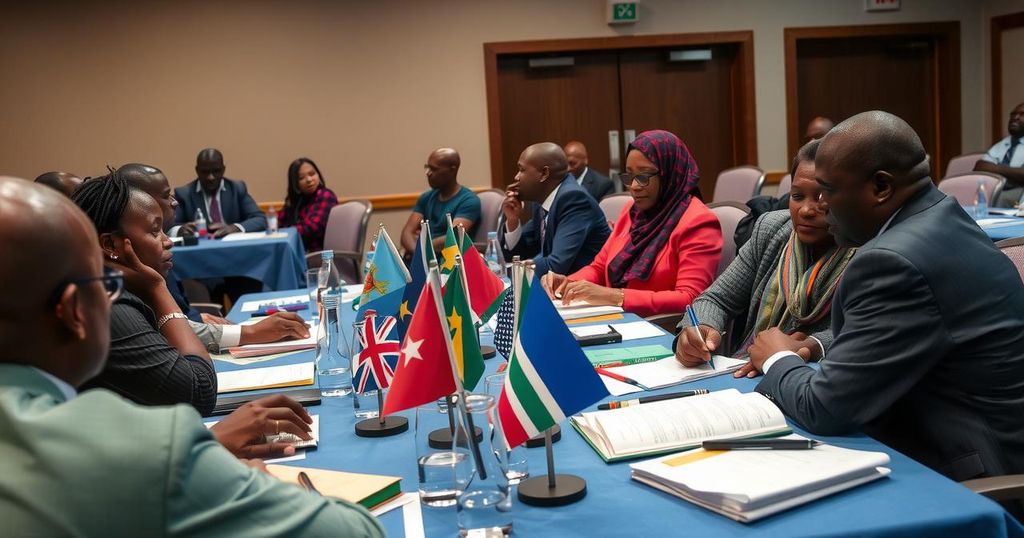The UN Commission on Human Rights in South Sudan is visiting Kenya to promote human rights and accountability. Led by Yasmin Sooka and Barney Afako, the delegation will engage with stakeholders, including government officials and civil society. They aim to integrate transitional justice into ongoing peace talks between the South Sudanese government and hold-out groups, emphasizing Kenya’s key role in this process.
A delegation from the United Nations Commission on Human Rights in South Sudan has initiated a five-day visit to Kenya to engage with various stakeholders. The primary focus of this visit is to promote human rights and ensure accountability for violations occurring in South Sudan. Led by Chair Yasmin Sooka and Commissioner Barney Afako, the delegation will hold discussions with high-ranking Kenyan government officials, international organization representatives, and civil society members.
The agenda includes emphasizing the necessity of maintaining human rights and mitigating the deterioration of the human rights situation in South Sudan. The Commission aims to consolidate the role of justice and accountability within the ongoing peace process, particularly emphasizing the significance of regional support, especially from Kenya, which is instrumental in safeguarding the peace transition. They also advocate for substantial backing for establishing a dependable and independent judicial system in South Sudan, in alignment with the Judicial Review Commission’s recommendations.
Additionally, the delegation will interact with stakeholders engaged in the Tumaini Initiative, a renewed mediation dialogue occurring in Nairobi between the South Sudanese Government and dissident groups who have yet to sign the Revitalized Agreement for Resolution of Conflict in South Sudan (R-ARCSS) from 2018. The Commission will stress the integration of transitional justice measures into the discussions, advocating for accountability, truth-telling, and adequate reparations for victims, as these elements are vital for achieving lasting peace in South Sudan.
The UN Commission on Human Rights in South Sudan operates as an independent body established by the United Nations Human Rights Council in March 2016, with its mandate renewed annually. The three Commission members serve as experts independently and are supported by a Secretariat based in Juba. Their responsibilities include investigating human rights conditions, offering recommendations to prevent further issues, and clarifying the facts surrounding violations and abuses according to both national and international law. The Commission’s insights are derived from interviews with victims and survivors, as well as relevant stakeholders.
The United Nations Commission on Human Rights in South Sudan was established to address the ongoing human rights violations in the country since the outbreak of conflict in 2013. The Commission conducts investigations into these violations and documents the findings to inform international bodies and suggest interventions. The ongoing peace process, highlighted by various dialogues, such as the Tumaini Initiative, aims to restore peace and stability in South Sudan by including discussions on transitional justice as part of the dialogue. Kenya’s influential role as a mediator in this context is critical to achieving meaningful outcomes and supporting South Sudan’s transition towards a stable governance and judicial system.
In summary, the UN Commission on Human Rights in South Sudan’s visit to Kenya seeks to fortify support for human rights and justice efforts in South Sudan. Engaging with various stakeholders, the Commission aims to foster a collaborative approach toward accountability and transitional justice, essential for sustainable peace in South Sudan. Their emphasis on the role of regional cooperation, particularly from Kenya, underscores the importance of international solidarity in addressing human rights issues in the region.
Original Source: www.radiotamazuj.org






